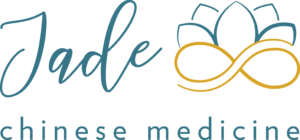I’m asked this question so often I really had to write about it.
Since this is a huge topic of discussion on both aspects: both Chinese Medicine and Mental health, this will be the first of a series of articles discussing various aspects of both subjects, how they relate, and interchange between the two. Below is a Chinese Medicine and Mental Health 101 crash course.
Mental health and Emotional Wellness might mean Anxiety, Depression, and Stress, as well as the more significant Mental Illnesses of Schizophrenia and Bi-Polar (yes, we do have those studies) – however obviously, this is a general overview, and does not go into specific treatment for these conditions.
What can Acupuncture or Chinese Medicine do for my mental wellness?
There seems a huge misconception in regard to mental health that a problem with your mind must be a problem in your mind. If you have a ‘problem’ with your mental wellness then you must need someone to focus on your mind and thoughts – or, or course, you have a problem with your brain chemistry. If you are under this latter impression (thanks to advertising, not evidence) then I have to tell you that after six decades of research there is quite simply no evidence that this is the case.*
The science of stress and anxiety – just a little bit 🙂
When you’re busy, stressed or tired, you become much more reactive to the stimulus around you. This is the Sympathetic Nervous System, the kind which evolved to save you from a tiger chasing you! All of our physiological stress responses have evolved for us to be stimulated either confront the source of your stress, or run from it – that’s why it’s referred to as ‘fight or flight’. But what happens when there is no tiger? Unfortunately, taking a run around the car park after a stressful phone call at work is generally considered a little bit strange. (and hitting someone will get you fired). So the stimulation of the sympathetic nervous system continues and rebounds to continually build, instead of unwind, as it naturally should.
This causes the sympathetic nervous system to be constantly switched on, operating in the ‘fight or flight’ mode. Long term stress activates the sympathetic nervous system and creates metabolic, hormonal and inflammatory disruptions throughout the body, and therefore also the mind.
These disturbances are regarded medically as a major factor in chronic health conditions, particularly chronic pain, insomnia, food allergies and digestive issues, and mental health. Many of these interact in more of a cascading, circular fashion rather than a linear one to one direction, which is why it’s so common to see multiple presentations and disorders at the same time.
How does Acupuncture treat this?
Acupuncture provides a gentle, clinically proven and very effective way to help you react in a more centred way to these eternal and internal demands, by directly regulating the hormones that regulate the nervous system.
Acupuncture assists the body to find a much needed balance between the sympathetic, get up and go (‘fight or flight’) and parasympathetic, heal and recover (‘rest and digest’) aspects of the body. What this means in plain terms is that we activate and switch on the relaxation response – its pretty much meditation on speed dial. That warm and fuzzy, relaxed but clear feeling you have after an Acupuncture treatment is not a co-incidence!
This translates to this picture below:

What does this say about the effectiveness of Acupuncture treatment for these conditions?
Acupuncture has been demonstrated in numerous clinical trials to be effective in mental health, chronic pain, and other chronic health conditions.
We have consistently been proven to perform at least equally with pharmaceutical drugs treatment for all of these conditions without the nasty side effects, and to perform equally with CBT, over counselling and other psychotherapies, for a range of chronic and mental health conditions.
So here it is, the first part of the jigsaw puzzle…
Please keep in mind all reference to Acupuncture means Real Acupuncture: the kind practiced by a trained and registered Acupuncturist. If you aren’t sure of the differences and what that might mean you can read up here. You can check that the person putting needles in has actual training in Acupuncture here.
*If you would like to read more on this, I highly recommend the work of Kelly Brogan, a Psychiatrist who writes extensively on this topic. You can find her website and blog here and an overall article on some of the issues and misconceptions here . You can also read the work of Robert Whitaker: Anatomy of an Epidemic is a good place to start.
References:
Cognitive therapy vs. medications for depression: Treatment outcomes and neural mechanisms. DeRubeis RJ, et al. Nat Rev Neuroscience. 2008 October
MacPherson, H., S. Richmond, M. Bland, S. Brealey, and R. Gabe. “Acupuncture and Counselling for Depression in Primary Care: A Randomised controlled trial.” (2013).
Imbalance between pro- and anti-inflammatory cytokines, and between Th1 and Th2 cytokines in depressed patients: the effect of electroacupuncture or fluoxetine treatment. Pharmacopsychiatry. 2009
Is acupuncture beneficial in depression: A meta-analysis of 8 randomized controlled trials?
Journal of Endocrinology 2012
The effectiveness and safety of acupuncture therapy in depressive disorders: Systematic review and meta-analysis. J Affect Disorders Psychological Science. 2009
Photo by Anthony Tran on Unsplash



